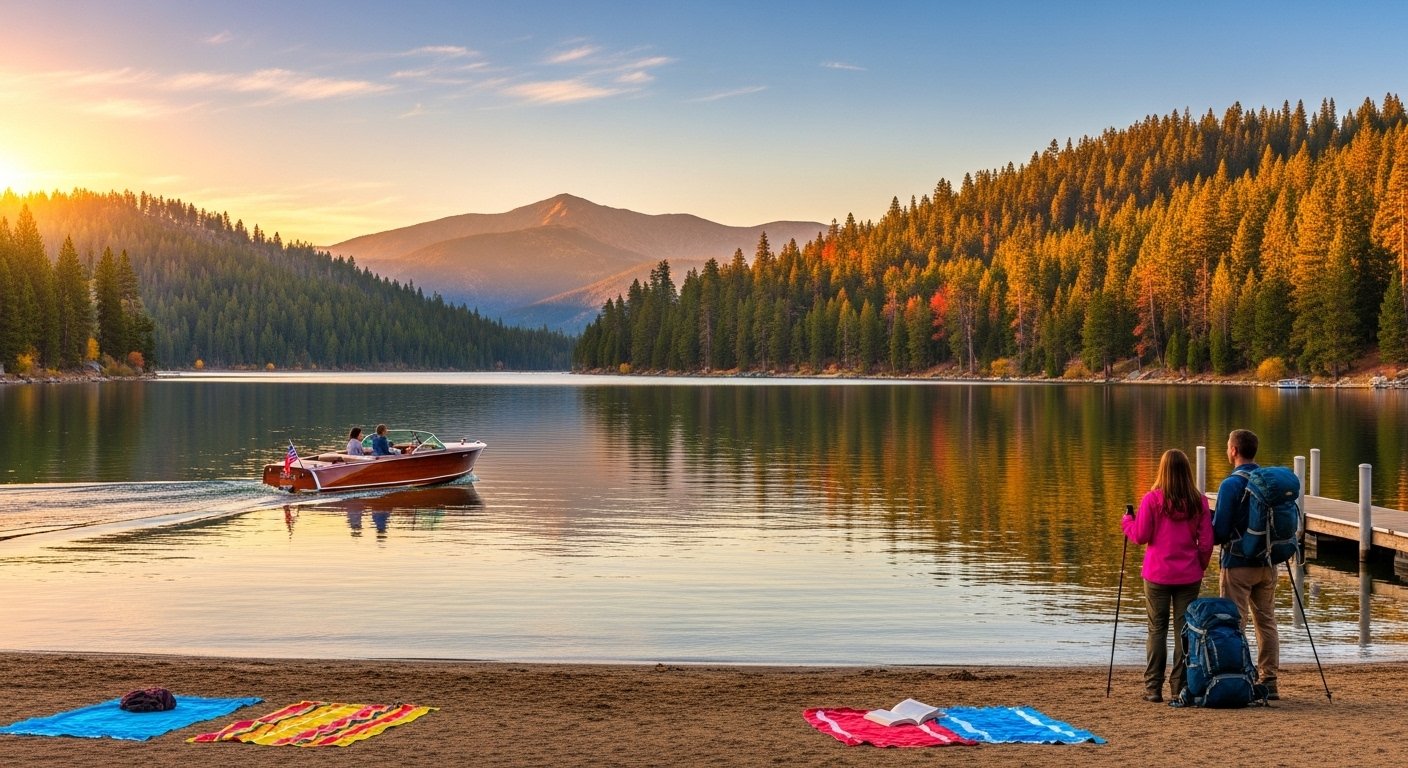Destinations
Which Pest Control Approaches Are Set to Dominate Virginia Beach in 2025?

If you’ve ever spent a summer in Virginia Beach, you know pests aren’t just a minor inconvenience—they can feel like part of the neighborhood. Between the mosquitoes buzzing around your backyard barbecue, termites eyeing your deck, and the occasional mouse making a surprise appearance in your garage, pest control from exterminator Virginia Beach is almost a way of life here.
But 2025 is shaping up to be a turning point. New technologies, eco-friendly solutions, and smarter prevention strategies are on the rise, and they’re about to change how we deal with pests in our coastal city.
So, what can Virginia Beach homeowners and business owners expect? Let’s dig in.
Pest Problems Unique to Virginia Beach
Our warm, humid climate makes Virginia Beach a perfect breeding ground for all sorts of pests. Add in our proximity to water and mild winters, and you’ve got a year-round invitation for insects and rodents.
- Mosquitoes thrive in damp, coastal areas—especially after heavy rains.
- Termites love our wooden decks, piers, and older homes.
- Rodents sneak into restaurants, marinas, and residential garages looking for food.
It’s not just the bugs and critters themselves—it’s the fact that they adapt fast. Which is why 2025’s pest control game plan looks a lot different from what you might remember even a few years ago.
Integrated Pest Management (IPM) Takes the Lead
If you’ve ever wondered, “Isn’t there a way to stop pests before they even become a problem?”—that’s exactly what Integrated Pest Management (IPM) aims to do.
Instead of waiting for an infestation to break out, IPM focuses on prevention, monitoring, and using treatments only when necessary. In Virginia Beach, that means things like:
- Sealing cracks and gaps before ants and roaches move in.
- Using moisture control to make your property less inviting to termites.
- Setting up regular inspections to catch problems early.
The beauty of IPM is that it’s tailored. A condo near the oceanfront won’t have the same issues as a suburban home in Kempsville, and IPM accounts for that.
Smart Pest Control Tech
Here’s where things get interesting. Pest control companies and exterminators in Virginia Beach
are starting to use AI-driven sensors, smart traps, and data tracking to predict and detect pest activity.
Imagine a sensor that alerts your pest control provider the moment it detects rodent movement—before you even see droppings. Or AI software that analyzes weather patterns to predict mosquito swarms. That’s not science fiction anymore; it’s already rolling out in 2025.
Eco-Friendly & Pet-Safe Treatments
Homeowners are asking more often, “Is this safe for my kids and pets?” The answer, more and more, is yes.
Eco-friendly pest control is growing fast here—using plant-based sprays, heat treatments, and biological controls (like beneficial insects) instead of harsh chemicals. Virginia Beach’s push for sustainability has played a big role in this shift. Many companies now advertise “green” services that are safe for the environment but tough on pests.
Specialized Coastal Pest Control
Living by the water is a dream… until you realize it comes with very specific pest challenges.
In 2025, expect to see more targeted programs for:
- Mosquito control using larvicides and habitat reduction.
- Termite protection with moisture barriers and advanced bait systems.
- Rodent prevention in marinas, seafood restaurants, and beachfront properties.
This isn’t one-size-fits-all—it’s location-specific pest control.
Climate-Responsive Strategies
Virginia Beach weather can be unpredictable. A mild winter can mean a bigger mosquito season. Heavy storms can push rodents into homes. Pest control companies are adapting by planning treatments based on weather trends, not just the calendar.
If you’ve ever thought, “Why are ants showing up earlier this year?”—this is why. The timing of treatments in 2025 is getting a lot smarter.
Niche & Specialty Pest Services
Not every pest problem involves ants or roaches. Wildlife control—think raccoons, squirrels, and even nuisance birds—is becoming a bigger part of the industry. Bed bug treatments for hotels and vacation rentals are also in higher demand, thanks to our tourism-heavy economy.
Choosing the Right Pest Control Partner
With so many new options, how do you pick the right service in Virginia Beach? Look for:
- Local experience and knowledge of coastal pests.
- Eco-friendly or IPM certifications.
- Transparent pricing and customized plans.
- Good reviews from other Virginia Beach residents.
It’s worth asking, “What’s your approach for my type of property and location?” A good provider will have a specific answer, not a cookie-cutter one.
Final Thoughts
2025 isn’t just about killing pests—it’s about staying ahead of them. With smart tech, eco-friendly treatments, and prevention-first strategies, Virginia Beach residents can expect safer, more effective solutions than ever before.
If pests have been running the show in your home or business, this is the year to take back control. The future of pest management here is looking smarter, greener, and a lot more proactive.
Destinations
Lake Arrowhead: A Perfect Destination for Every Traveler

Nestled in the San Bernardino Mountains, Lake Arrowhead is a picturesque alpine getaway that offers the perfect blend of serenity, adventure, and luxury. Whether you’re a digital nomad seeking a peaceful retreat, a family looking for outdoor fun, or a backpacker eager to explore nature, Lake Arrowhead caters to all. This charming lakeside town boasts crystal-clear waters, scenic trails, and a unique blend of rustic charm and upscale amenities. With its inviting atmosphere and array of activities, Lake Arrowhead promises an unforgettable experience for any traveler.
Best Time to Visit Lake Arrowhead
The beauty of Lake Arrowhead changes with the seasons, making it a year-round destination. However, depending on your preferences, the best time to visit may vary.
Spring (March to May): Spring offers pleasant weather with mild temperatures and blooming wildflowers, making it perfect for hiking and exploring the town. The crowds are lighter, so you can enjoy the tranquility of the lake without the bustle of peak season.
Summer (June to August): For those seeking a sunny lakeside retreat, summer is ideal. The temperatures are warm but comfortable, with plenty of outdoor activities such as boating, swimming, and hiking. This is peak tourist season, so expect more crowds and higher prices.
Fall (September to November): Fall is another fantastic time to visit. The weather is still warm, and the changing leaves create a stunning landscape. It’s also quieter than the summer months, offering a more relaxed atmosphere.
Winter (December to February): For winter sports enthusiasts, Lake Arrowhead transforms into a cozy snow-capped wonderland. The surrounding mountains become a hub for skiing, snowboarding, and snowshoeing. However, some amenities might be closed due to weather conditions.
Top 10 Must-Visit Attractions in Lake Arrowhead
Lake Arrowhead Village: The heart of the area, this quaint village offers a mix of shopping, dining, and entertainment. Take a leisurely stroll along the lakeshore, enjoy the many boutiques, or grab a coffee at one of the charming cafes.
Lake Arrowhead Scenic Boat Tour: Hop on a boat for a guided tour of the lake. You’ll see beautiful homes, wildlife, and enjoy scenic views of the mountains surrounding the area.
SkyPark at Santa’s Village: This unique theme park is a hidden gem for families, featuring zip lines, mountain biking, hiking trails, and seasonal events. It’s perfect for adventure seekers and families with children.
Wildhaven Ranch: A wildlife sanctuary that allows you to get up close with animals native to the region. It’s a great spot for animal lovers and those wanting to learn more about local wildlife.
Heaps Peak Arboretum: Ideal for nature enthusiasts, this serene spot offers hiking trails, picnic areas, and a variety of native plant species. It’s a peaceful place to reconnect with nature.
The Mountain History Museum: Located in Lake Arrowhead Village, this museum provides fascinating insights into the region’s history, from Native American heritage to the town’s early days as a lumber hub.
Arrowhead Queen Boat Tour: For a more relaxing day on the water, the Arrowhead Queen offers an educational tour of the lake, including a fascinating history of the area and breathtaking scenic views.
Lollipop Park: A small but delightful amusement park, Lollipop Park is great for families with young children. It features go-karts, a carousel, and other fun rides.
San Bernardino National Forest: Outdoor adventurers will love the numerous hiking, biking, and camping options within the National Forest. Popular hikes include the Heart Rock Trail and the Pine Knot Trail, both offering stunning views of the surrounding mountains.
Lake Gregory Regional Park: If you’re looking for more water activities, this nearby lake offers swimming, paddleboarding, and fishing. It’s less crowded than Lake Arrowhead, offering a more laid-back experience.
Local Cuisine Recommendations
Lake Arrowhead offers a variety of dining options, from casual eateries to upscale dining experiences. Here are some must-try dishes and the best spots to enjoy them:
Arrowhead Grill: Known for its steaks and locally sourced ingredients, Arrowhead Grill is the place for a hearty meal. Try their signature prime rib or a classic burger.
Lake Arrowhead Village: The Village is home to several cafes and restaurants offering local flavors. Stop by The Lake Arrowhead Brewery for a craft beer paired with freshly made pizza.
The Swiss Chalet: For those craving a cozy atmosphere and hearty Swiss-inspired dishes, The Swiss Chalet offers a perfect dining experience with raclette and fondue.
Jetties at the Lake Arrowhead Resort: For an upscale experience, head to Jetties for fresh seafood and lake views. Their seafood chowder and grilled fish are local favorites.
Transportation Tips
Airport Info: The nearest major airport is Ontario International Airport (ONT), approximately 50 miles away from Lake Arrowhead. For a more scenic drive, you can fly into Bob Hope Airport in Burbank (BUR) or Palm Springs International Airport (PSP).
Public Transport: Lake Arrowhead does not have extensive public transportation, so renting a car is the most convenient way to get around. There are also shuttle services that operate during peak seasons.
Car Rental: Renting a car is recommended for exploring the area. It gives you flexibility to visit nearby attractions, such as Big Bear Lake or San Bernardino National Forest.
Budget Breakdown
Whether you’re a budget traveler or looking to indulge in luxury, Lake Arrowhead has options for every wallet.
Budget Travelers: Expect to spend around $50 to $80 per day, including accommodation in a basic hotel or Airbnb, meals at affordable restaurants, and some activities such as hiking or free attractions.
Mid-Range Travelers: Budget around $100 to $200 per day. This would include staying at a mid-tier hotel or resort, dining at moderately priced restaurants, and enjoying a mix of paid activities, such as boat tours or visits to local attractions.
Luxury Travelers: For luxury travelers, you can expect to spend $250 and up per day. This includes staying in upscale resorts, fine dining, and engaging in premium experiences, like private boat tours or guided hiking trips.
Hidden Gems and Off-the-Beaten-Path Locations
The Pinnacles: A serene and lesser-known hiking spot that offers panoramic views of the entire San Bernardino Valley.
Deep Creek Hot Springs: A natural hot spring located a bit further outside of Lake Arrowhead. It’s a perfect spot for those looking to relax and soak in nature.
Dogwood Campground: A secluded campground in the San Bernardino National Forest, ideal for those looking to escape the crowds and enjoy quiet nights under the stars.
Safety Tips and Cultural Etiquette
Safety: Lake Arrowhead is a relatively safe destination, but as with any mountainous area, be mindful of your surroundings. Always stay on marked trails while hiking, carry enough water, and check the weather forecast for snow or rain.
Cultural Etiquette: The area is home to many Native American communities, so be respectful of local customs and traditions. When visiting public spaces, always clean up after yourself to help preserve the beauty of the area.
Sample Itinerary
3-Day Itinerary:
Day 1: Arrival and exploration of Lake Arrowhead Village, followed by a relaxing boat tour and dinner at Arrowhead Grill.
Day 2: Hike the Heart Rock Trail, followed by a visit to SkyPark at Santa’s Village and dinner at The Swiss Chalet.
Day 3: Visit Wildhaven Ranch, then head to Lake Gregory for water activities before departing.
7-Day Itinerary:
Day 1-2: Arrive in Lake Arrowhead and spend two days exploring Lake Arrowhead Village, enjoying the scenic boat tours, and sampling local cuisine.
Day 3-4: Embark on a day hike in the San Bernardino National Forest and visit the Mountain History Museum. In the evening, relax at a lakeside restaurant.
Day 5-6: Take a day trip to Big Bear Lake for more adventurous activities like skiing or mountain biking. On Day 6, explore the hidden gems around the area, like Deep Creek Hot Springs.
Day 7: Enjoy a day of relaxation at a local spa or take a final hike before departing.
Conclusion: Practical Travel Tips
Pack for All Seasons: The weather can change quickly, so bring layers if you’re visiting during the fall or winter. Don’t forget sunscreen for summer adventures.
Book in Advance: If you’re visiting during the peak summer months, make sure to book your accommodations and activities ahead of time to avoid disappointment.
Stay Connected: Digital nomads can enjoy a quiet work environment, but Wi-Fi in some areas can be spotty. Ensure you have a backup plan if you need stable internet.
With its mix of outdoor adventures, luxury accommodations, and peaceful lakeside charm, Lake Arrowhead is the ideal destination for all types of travelers. Whether you’re seeking adventure, relaxation, or a bit of both, you’ll find it here.
Destinations
Flor Beach: Top Attractions, Hidden Gems & Tips

Nestled along a breathtaking coastline, Flor Beach is a hidden gem for those seeking both adventure and tranquility. Whether you’re a backpacker on a budget, a luxury traveler, or a digital nomad looking for a peaceful retreat, this beautiful beach offers a mix of natural beauty, rich culture, and exciting activities. With its pristine sands, crystal-clear waters, and a range of activities for all types of travelers, Flor Beach is the perfect destination for those looking to escape the hustle and bustle of daily life.
Best Time to Visit Flor Beach
Flor Beach boasts a tropical climate, making it an ideal destination year-round. However, the best time to visit depends on the type of experience you’re seeking.
Peak Season (December to March): For those seeking warm weather and clear skies, the peak season is perfect. This is when the beach is at its busiest, so if you’re a luxury traveler or family vacationer, expect more crowds and higher prices.
Off-Peak Season (April to June): For backpackers and digital nomads, this is a sweet spot. The weather is still great, but the crowds thin out, and you can enjoy the beach without the high season prices.
Rainy Season (July to September): While the rainy season may bring occasional downpours, it’s also a time when prices drop, making it ideal for those on a budget. Expect lush surroundings and fewer tourists.
Top 10 Must-Visit Attractions
Flor Beach itself: Of course, the star attraction is the beach itself. Relax, swim, or participate in water activities like snorkeling or paddleboarding.
Beachfront Walking Trails: Perfect for adventure seekers, these trails offer stunning views of the coastline and are ideal for a sunset walk.
Flor National Park: A must for nature lovers, this park features lush forests and a rich variety of wildlife.
Coral Gardens: Dive into the depths of Flor Beach’s underwater world with a snorkeling or scuba diving trip to see vibrant coral reefs.
Historic Town Square: Wander through this charming area filled with cobblestone streets, local markets, and artisan shops.
Fishing Village: For those interested in local culture, visit this village where you can experience authentic seafood and talk to local fishermen.
Cultural Museum: Explore the rich history of Flor Beach through exhibits showcasing the local heritage, including indigenous art and colonial history.
Surfing at Coral Point: For the adrenaline junkies, Coral Point offers excellent surfing conditions with waves that suit both beginners and pros.
Zipline Adventure: Head into the jungle for an exhilarating zipline experience that offers panoramic views of the region.
Hidden Waterfalls: Off the beaten path, these beautiful waterfalls are perfect for a quiet retreat in nature.
Local Cuisine Recommendations
Flor Beach offers a wide variety of local dishes that highlight the freshest ingredients from the land and sea. Here are some must-try dishes:
Grilled Fish Tacos: Freshly caught fish served in a soft tortilla with tangy salsa and creamy guacamole. Head to El Mariscos for a local favorite.
Ceviche: This dish of raw fish marinated in citrus juice is a must-try, and Sabor Tropical is the place to enjoy it with an ocean view.
Ropa Vieja: A Cuban-inspired dish of shredded beef cooked in tomato sauce, served with rice and beans. Try it at Flor Café.
Coconut Rice: A fragrant rice dish made with coconut milk, often served alongside fish or chicken. La Playa Restaurante serves one of the best versions on the beach.
Fried Plantains: A perfect side dish or snack, crispy on the outside and soft inside. La Cocina de Maria is renowned for its plantains.
Transportation Tips
Airport Info: Flor Beach is served by the Flor International Airport, just a 20-minute drive from the beach. It’s well-connected to major cities, making it easy to fly in.
Public Transport: While Flor Beach is relatively small, you can rely on local buses for nearby excursions. They’re cheap and frequent, but be prepared for occasional delays.
Car Rentals: Renting a car is highly recommended for those looking to explore beyond the beach, especially for visiting hidden waterfalls or remote towns. There are several rental agencies at the airport.
Bicycles and Scooters: For those who prefer a more eco-friendly way of getting around, renting a bike or scooter is a fun and convenient option.
Budget Breakdown
Budget Travelers: You can expect to spend around $30–50 per day, which includes basic accommodation, street food, and transportation.
Mid-Range Travelers: For those looking for comfort without splurging, expect a daily cost of $70–150. This includes comfortable hotels, dining at mid-range restaurants, and engaging in a few activities like tours or water sports.
Luxury Travelers: Luxury accommodations, gourmet meals, and private tours will bring your daily costs to around $250+ per day.
Hidden Gems and Off-the-Beaten-Path Locations
Flor Beach is full of surprises for those who venture off the main paths. Here are some lesser-known spots:
Secret Beach Cove: A secluded area just beyond the main beach, perfect for those who want peace and privacy.
Old Lighthouse: A hike to the old lighthouse offers spectacular views and an opportunity to see local wildlife, including colorful birds.
Jungle Waterfall: A hidden waterfall tucked deep in the jungle, accessible via a short but challenging hike, offering serene solitude away from the crowds.
Safety Tips and Cultural Etiquette
Safety: Flor Beach is generally safe, but always be cautious of your surroundings. Keep valuables in a safe and avoid walking alone at night, especially on secluded paths.
Cultural Etiquette: Flor Beach has a mix of locals and tourists. It’s important to be respectful of local customs, such as greeting people with a smile and a handshake, especially in the more rural areas.
Weather Precautions: With the tropical climate, it’s essential to stay hydrated and wear sunscreen regularly. Always carry a hat or umbrella for sun protection.
Sample Itinerary
3-Day Itinerary:
Day 1: Arrival, beach relaxation, and a visit to the Historic Town Square.
Day 2: Morning hike to the Old Lighthouse, afternoon snorkeling at Coral Gardens, and dinner at Sabor Tropical.
Day 3: Explore Flor National Park and have a relaxing evening on Secret Beach Cove.
7-Day Itinerary:
Day 1: Arrival and beach day.
Day 2: Explore the Fishing Village and try local dishes at La Playa Restaurante.
Day 3: Take a surfing lesson at Coral Point and relax on the beach.
Day 4: Day trip to the Hidden Waterfalls and Old Lighthouse.
Day 5: Zipline Adventure in the jungle.
Day 6: Visit the Cultural Museum and enjoy a sunset walk on the Beachfront Trail.
Day 7: Relax and unwind before departure.
Conclusion: Practical Travel Tips
Flor Beach offers a little something for everyone, whether you’re looking for adventure, relaxation, or cultural immersion. To make the most of your visit:
Book accommodations in advance during peak season.
Pack light but include essentials like sunscreen, a hat, and comfortable shoes for exploration.
Use local transport for an authentic experience and to save money.
Embrace the local culture by trying new foods and engaging with the community.
Flor Beach promises an unforgettable experience with its blend of relaxation, adventure, and cultural charm. Whether you’re planning a short getaway or an extended stay, it’s a destination that will stay with you long after you leave.
Destinations
Things to do in Barcelona: Everything You Need to Know

Barcelona is one of Europe’s most iconic and vibrant cities, known for its beautiful beaches, stunning architecture, and rich cultural history. Located along the Mediterranean coast, Barcelona is a perfect blend of history, modernism, and creative energy. Whether you’re a backpacker looking for an affordable adventure, a luxury traveler seeking world-class amenities, or a family on vacation, Barcelona offers something for everyone.
From the masterpiece works of Antoni Gaudí to the lively streets of La Rambla, there is no shortage of exciting experiences. Let’s explore why this city should be on your bucket list.
Best Time to Visit Barcelona: Seasonal Breakdown
Spring (March to May): Spring is one of the best times to visit Barcelona. The weather is mild and pleasant, and the city’s parks and gardens are in full bloom. The crowds are still manageable, making it ideal for sightseeing without the summer rush.
Summer (June to August): Barcelona can get crowded during the summer months, with tourists flocking to the city’s beaches and popular landmarks. Expect warm temperatures, often exceeding 30°C (86°F). If you don’t mind the crowds and higher prices, this is the perfect time to enjoy beach parties and outdoor festivals.
Autumn (September to November): The fall season is another fantastic time to visit, as the weather remains warm and pleasant, with fewer tourists. The city feels more relaxed, making it perfect for those who want to enjoy the sights without the intense summer heat.
Winter (December to February): Winter in Barcelona is relatively mild compared to other European cities, with temperatures ranging between 10-15°C (50-59°F). While it’s not ideal for beach days, the city offers a quieter experience, making it perfect for exploring museums and cultural sites.
Top 10 Must-Visit Attractions in Barcelona
La Sagrada Família: Gaudí’s masterpiece, this basilica is one of the most famous landmarks in Barcelona. Its intricate design and impressive facades will leave you in awe. Don’t forget to book your tickets in advance!
Park Güell: A colorful and whimsical park designed by Gaudí, offering panoramic views of the city. It’s a great place to relax and enjoy nature while taking in the fantastic architecture.
Casa Batlló: Another one of Gaudí’s creations, this modernist building with its unique design and vibrant colors is a must-see for architecture enthusiasts.
La Rambla: This iconic street is lined with shops, cafes, and street performers. Stroll through the area and stop at the Mercat de Sant Josep de la Boqueria for fresh produce and local snacks.
Barceloneta Beach: If you’re in Barcelona for the sun and sea, head to Barceloneta Beach. It’s the most popular beach in the city, perfect for sunbathing, swimming, and people-watching.
Gothic Quarter: The medieval heart of Barcelona, the Gothic Quarter is home to narrow streets, hidden squares, and beautiful historic buildings. Explore Barcelona Cathedral and the Plaça del Rei for a true taste of the city’s history.
Montjuïc Hill: Offering stunning views of the city, Montjuïc is home to several attractions, including the Magic Fountain, Montjuïc Castle, and the Olympic Stadium. You can hike up or take the cable car for a scenic ride.
Poble Espanyol: An open-air museum featuring replicas of traditional Spanish buildings and craft shops. It’s a great way to explore Spain’s diverse culture in one place.
Camp Nou: Football fans won’t want to miss a tour of FC Barcelona’s iconic stadium, home to some of the world’s best football players. It’s an immersive experience with a museum and access to the pitch.
Palau de la Música Catalana: A UNESCO World Heritage site, this concert hall is known for its stunning modernist architecture and beautiful stained-glass skylight. It’s worth catching a performance or taking a guided tour.
Local Cuisine Recommendations
Barcelona’s food scene is an explosion of flavors, influenced by Mediterranean ingredients and Catalan traditions. Here are some must-try dishes:
Paella: Though originally from Valencia, Barcelona offers some amazing seafood paella. Try it at Can Majó in Barceloneta.
Patatas Bravas: Fried potato cubes served with a spicy tomato sauce, perfect for sharing as a tapa. Bar Tomás is a great spot for this dish.
Escudella i Carn d’Olla: A Catalan winter stew made with meat, vegetables, and rice. Head to Café de l’Opera for a traditional serving.
Churros con Chocolate: A delicious dessert of deep-fried dough served with thick, hot chocolate. You’ll find these at Xurreria San Román.
Crema Catalana: Similar to crème brûlée, this dessert is a local favorite. El Nacional offers a great version of this sweet treat.
Transportation Tips
Airport: Barcelona-El Prat Airport (BCN) is the main international gateway to the city, located about 12 km south of the city center. You can reach the city center via the Aerobus (direct bus service), a taxi, or the L9 Sud metro line.
Public Transport: Barcelona has an efficient public transportation system, including buses, trams, and the metro. A T10 ticket offers 10 rides on any public transport for a discounted price.
Car Rental: While you can rent a car in Barcelona, it’s not necessary as the city’s public transport is excellent. If you do rent a car, be prepared for heavy traffic and limited parking options in the city center.
Budget Breakdown
Budget Travelers: Expect to spend around €50-€70 per day. Accommodation options like hostels or budget hotels can cost around €25-€40 per night. Meals at local tapas bars or casual restaurants will cost around €10-€15 per meal.
Mid-Range Travelers: For a more comfortable experience, budget around €100-€150 per day. This will cover 3-star hotel accommodation, meals at decent restaurants, and sightseeing.
Luxury Travelers: For a high-end experience, budget upwards of €200 per day. This will include stays in 5-star hotels, fine dining, private tours, and high-end shopping.
Hidden Gems and Off-the-Beaten-Path Locations
Bunkers del Carmel: For stunning panoramic views of Barcelona without the crowds, head to the Bunkers del Carmel. It’s a former military site turned viewpoint.
El Raval: A trendy neighborhood known for its multicultural atmosphere, El Raval offers quirky shops, street art, and hidden bars.
Carrer de Petritxol: A narrow, charming street filled with traditional chocolate shops and cafes.
Safety Tips and Cultural Etiquette
Pickpocketing: Barcelona is known for pickpockets, especially in crowded areas like La Rambla. Keep an eye on your belongings and avoid carrying too much cash.
Respect for Local Traditions: Catalonia has a strong regional identity, so be mindful of their culture and language. While most people speak Spanish, Catalan is widely spoken in the city.
Sample Itinerary: 3 Days in Barcelona
Day 1: Morning – Visit La Sagrada Família; Afternoon – Explore Park Güell; Evening – Stroll along La Rambla and enjoy tapas.
Day 2: Morning – Visit Barceloneta Beach; Afternoon – Tour the Gothic Quarter and Barcelona Cathedral; Evening – Enjoy dinner at El Nacional.
Day 3: Morning – Take the cable car up to Montjuïc; Afternoon – Visit the Magic Fountain and Poble Espanyol; Evening – End your day at a rooftop bar with views of the city.
Sample Itinerary: 7 Days in Barcelona
Day 1-2: Explore the main attractions: La Sagrada Família, Casa Batlló, La Rambla.
Day 3: Take a day trip to Montserrat or the nearby Sitges beach town.
Day 4-5: Immerse yourself in Barcelona’s food scene with a culinary tour, visit Poble Espanyol, and explore El Raval.
Day 6: Discover more hidden gems: Bunkers del Carmel, Carrer de Petritxol, and relax at Barceloneta Beach.
Day 7: Enjoy a day of leisure, visit Camp Nou, and end with a sunset dinner overlooking the city at Mirablau.
Conclusion: Practical Travel Tips
Barcelona is a city that offers endless opportunities for exploration. Whether you’re lounging on the beach, enjoying the unique architectural wonders, or savoring the local food, there’s no shortage of things to do. Plan your visit carefully to make the most of your time in this enchanting city. And remember, don’t just visit the tourist hotspots—immerse yourself in the local culture, explore off-the-beaten-path locations, and make unforgettable memories.






